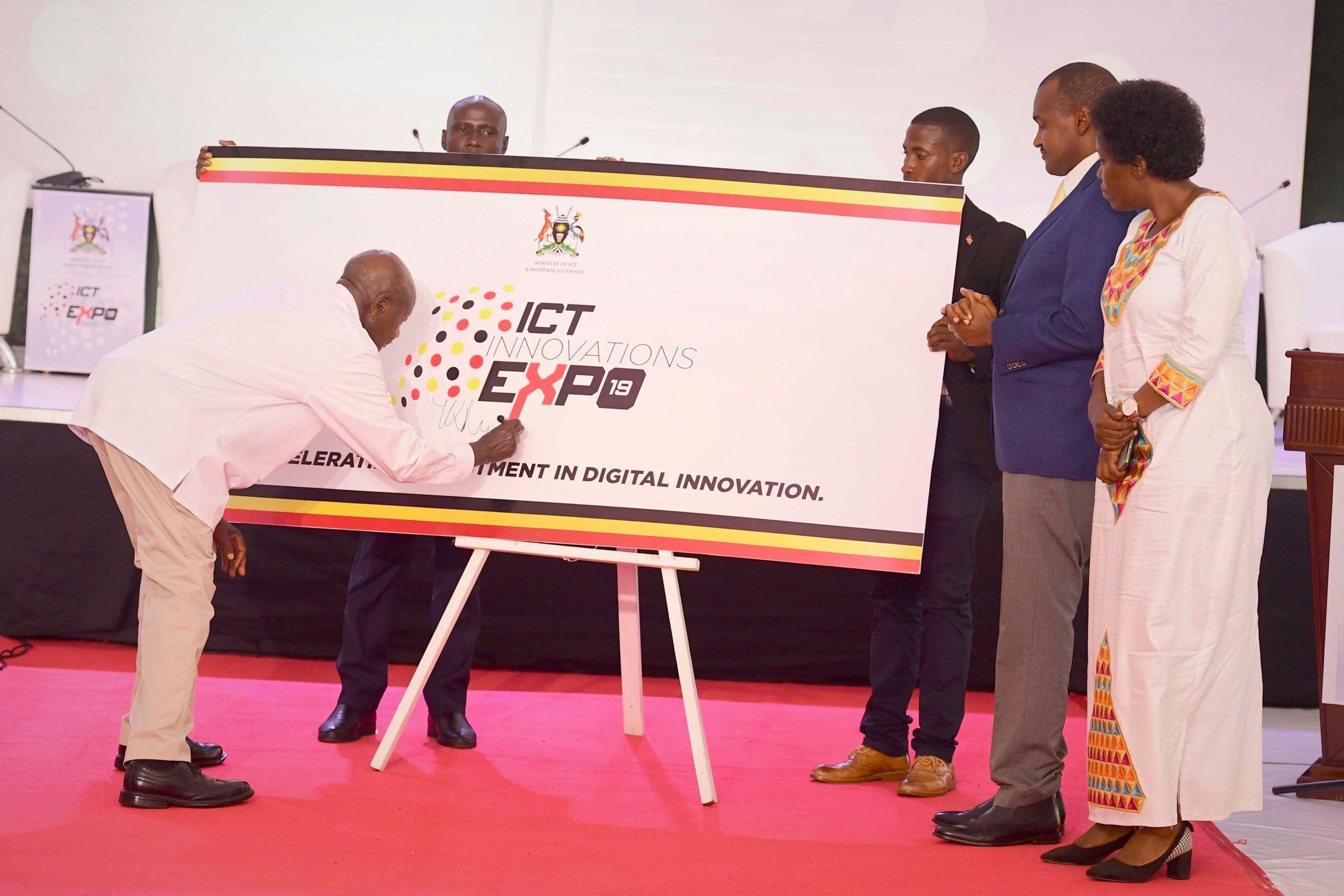One of the immediate and major achievements of the just concluded Uganda ICT Innovation Expo 2019 is President Yoweri Museveni’s directive that going forward all government entities must source ICT solutions locally first, before they can go out to the international market. The country spends some Shs 50 billion on imported solutions.
This directive will come as a huge relief to innovators and investors in innovation because some of the weakest links in the local ICT Innovation ecosystem have been lack of funding, slow adoption of innovations by government and a relatively weak and unsupportive legal and policy framework.
As a result of these challenges, some promising innovators had shifted base to other countries where they say the policy enrolment is relatively friendlier and enabling to launch and thrive. The Infrastructure Magazine has in the recent past spoken to upcoming Ugandan innovators with very promising products, who have had to keep one leg at home in Uganda where their heart lies, and where their innovations are birthed; and the other leg in a second country, normally Kenya or China, where they find a conducive environment to grow their innovations.
Speaking to this Magazine recently Usher Namanya, the brain behind Pesamoni, a money transfer service and digital cash fintech told us that he had to plan to launch his product in Nairobi, Kenya as he was sure of getting better traction there, compared to Uganda where he would probably go unnoticed. He said at the time that one of the biggest challenges faced by innovators was slow adoption of innovations by the government.
This new directive should now be able to excite the local innovation community to think hard and fast, to fill the space that Government is creating for them to provide local solutions to local problems.
President Museveni also promised that Government will make money available to support promising innovations. “I visited different exhibition stalls and I must commend the different Ugandans who are embracing technology as a game-changer in the face of human and global needs…….There will always be money to fund local innovations. Once you show that we can use it, we can then show the money,”
To underscore his appreciation of the matter, Museveni said, “…technology is no longer a choice but a necessity. I would, therefore, like to assure Ugandans that we will work towards eliminating import solutions in the ICT sector, such money should be diverted to local innovators.”
Another innovator, Edgar Ofuyuru of Pixan Corporation told this magazine recently that bureaucracy in government slows innovation. Ofuyuru’s Pixan Corporation designed the first Uganda’s locally made mobile phone. The company has produced prototypes for their Pixan M8 and Pixan M6 hardware but has somehow not been able to officially launch.
Once a conducive legal and policy framework is put in place, then challenges like these may be things of the past.
Outgoing Minister for ICT and National Guidance, Frank Tumwebaze challenged his incoming counterpart, Judith Nabakooba to focus efforts in creating a more conducive policy and legal framework to support the innovation ecosystem.
These seemingly small interventions, if well followed through and executed have potential to cause ground breaking changes in the sector. The sector will flourish and make even a bigger contribution to the economy. ICT currently contributes about 7-10 per cent of the GDP, but like Tourism, it is one of the fastest growing.
Nabakooba has committed to implementing the directive. She said in a tweet, “…The President guided on something that we must applaud. No more importation of foreign ICT solutions. This makes our collective efforts from all angles-policy, regulator, innovators, users, a lot easier.”
The ICT Expo is the idea of the Ministry of ICT and National Guidance. In a pre-event press release, the Ministry said, it has been implementing the National ICT Initiatives Support Program (NIISP) since 2017. “The main objective of this program is to develop the ICT Innovation ecosystem in order to create jobs and to promote the adoption of ICT Innovations and locally developed systems in Government and the private sector. One of the components of this program is to offer support to local ICT Innovators to access both local and international markets. “
They said the idea is to hold the annual ICT Expos is to showcase the potential of ICT Innovation in the country. This year’s event received the highest blessing yet by presence of the president, ministers, development partners, representatives of venture capital companies, academia, innovation hubs, among others.
The Ministry of ICT is already working with innovation hubs to provide training, mentorship and placements. Some of these include HiveColab, Resilient Africa Network (RAN), Makerere Incubation and Innovation Center (MIIC), CAMTech, Outbox, Innovation Village.
The Government has also embarked on building ICT innovation hubs and workspaces in different locations in the country to support efforts to increase innovation. “The hubs will intensify creativity to transform Uganda’s economy.” The first government hub is located at the Uganda Institute of Information Communication Technology in Nakawa, Kampala.













